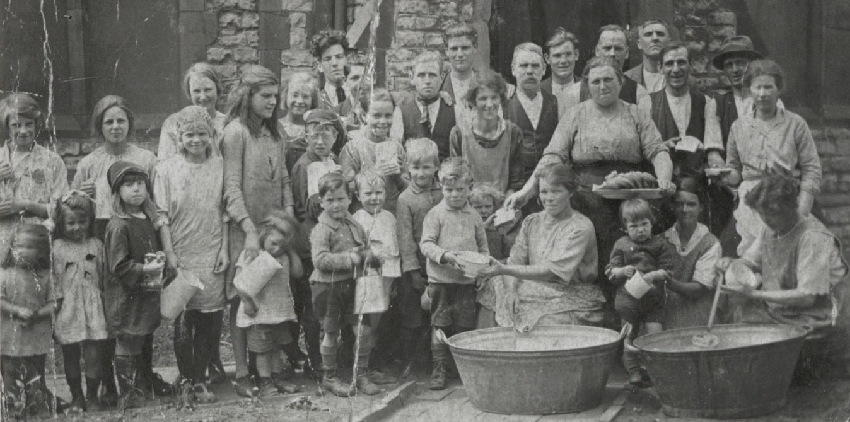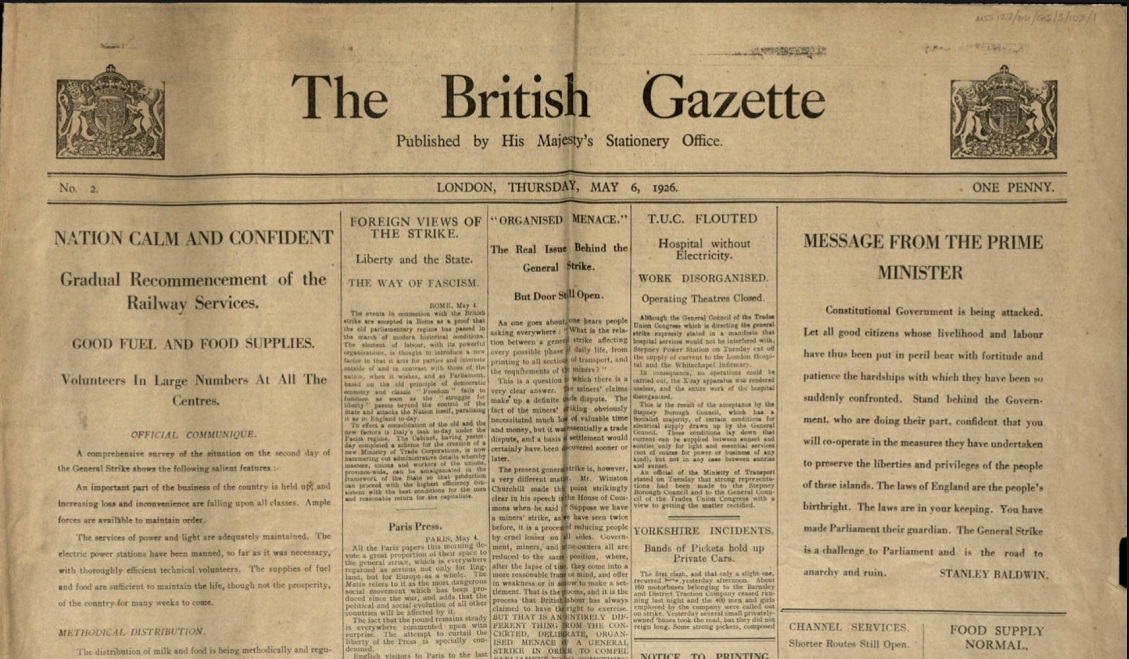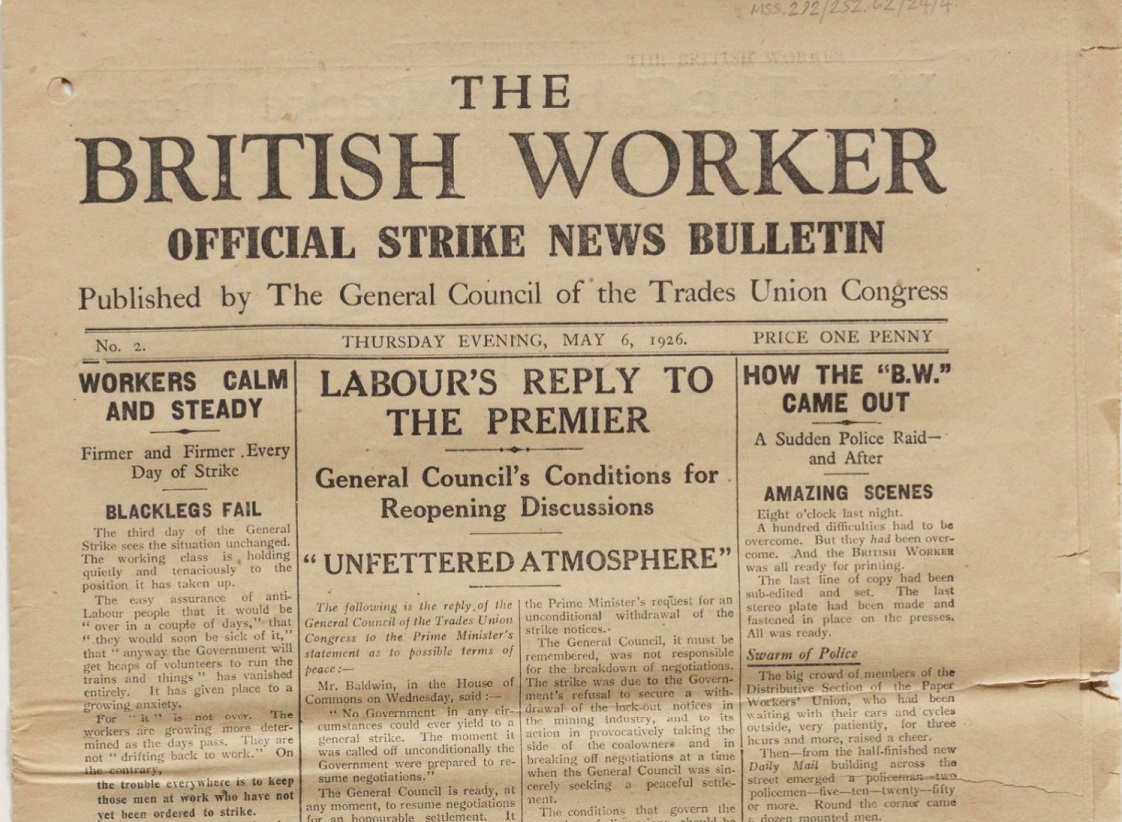
Living through the General Strike

Introduction
People are different. They come from different backgrounds and have different views. The General Strike affected them in different ways. Here are two people's reactions to the strike.
After you have studied this webpage, answer the question sheet by clicking on the 'Time to Work' icon at the top of the page
1.
When I arrived at Paddington there were no ordinary porters, but I met a very good-looking man, medical student he looked like, who seized my suitcases. I wanted to get to Baker Street, so he and I explored passages with locked gates; he knew nothing about it, apparently...
It is perfectly splendid to hear, instead of 'Arrer 'n 'Uxbridge', a beautiful Oxford voice crying, 'Harrow and Uxbridge train'. Ticket collectors say, 'Thank you very much'.
One man in plus fours waved a green flag. Nothing happened. He waved again, and blew a whistle, then said to the driver in hurt tones, 'I say, you might go.' It's all very jolly and such an improvement on the ordinary humdrum state of things .
Interrogating the sources:
Use the clues in
the source to deduce:
what did the author feel about the strike, and why?
which social class did they come from?
what gender were they?
what were they doing/ what was their job?
2.
This is a transcript of a radio interview, made in the 1970s. 'Blacklegs' were stnke-breakers, men who did the jobs of the people who were on strike.
1926 was the best year for weather that I can remember. We had a lovely summer. People always said that God had been good to the pitman. Because they needed the sun. And although we had no money we hadn't any money at all we still kind of managed.
During the strike we did in this part of the world one of the recreations was watching the blacklegs being marched up from the pit with a whole troop of policemen...
The men didn't you weren't allowed to shout at them or anything. You just stood and watched. Sometimes the black-legs shouted back but the people just stood silent and watched them go by.
For food, well naturally we lived pretty mean. Very hard on the wives, trying to make ends meet without any! [He laughs.] It was funny. What we got instead of meat was broth .. It's not bad, quite reasonable.
Interrogating the sources:
Use the clues in
the source to deduce:
what did the author feel about the strike, and why?
which social class did they come from?
what gender were they?
what were they doing/ what was their job?
3. Soup Kitchen during the Miners' General Strike, Walsall Wood

4. British Gazette, Thursday 6 May 1926
The 'MESSAGE FROM THE PRIME MINISTER' read: "Constitutional government is being attacked. Let all good citizens, whose livelihood and labour have thus been out in peril, bear with fortitude and patience the hardships with which they have been so suddenly confronted. Stand behind the government, who are doing their part, confident that you will co-operate in the measures they have undertaken to preserve the liberties and privileges of the people of these islands. The laws are in your keeping. You have made Parliament their guardian. The General Strike is a challenge to Parliament and is the road to anarchy and ruin."

5. British Worker, Thursday 6 May 1926
'LABOUR'S REPLY TO THE PREMIER' read:
"The General Council, it must be remembered, was not responsible for the
breakdown of negotiations. The
strike was du to the Governments refusal to secure a withdrawal of the
lock-out notices in the mining industry, and to its action in provocatively
taking the side of the coalowners and in breaking off negotiations at a time
when the General Council was sincerely seeking a peaceful settlement.
